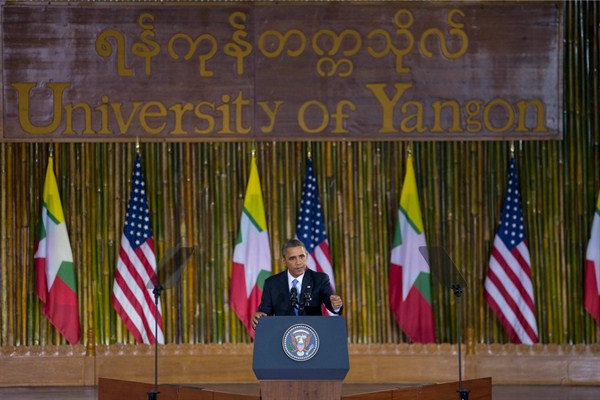Editor’s note: This article is part of an ongoing WPR series inviting authors to identify the biggest priority—whether a threat, risk, opportunity or challenge—facing the international order and U.S. foreign policy today.
America’s traditional role in promoting democracy and human rights abroad has fallen out of favor in a serious way. It has rarely registered a mention during this year’s presidential campaign, and Republican candidate Donald Trump has suggested that the United States lacks the standing to criticize human rights lapses abroad, given social turmoil at home. For all its various legacies, the Obama administration will leave little mark on this score. In a long exit interview with Foreign Affairs recently, Secretary of State John Kerry made no mention of either democracy or human rights. And in a lengthy article in the magazine describing the administration’s accomplishments, Vice President Joe Biden hardly mentioned the effort.
Yet the cause of democracy and human rights remains urgent, more so than at any time in recent memory.

